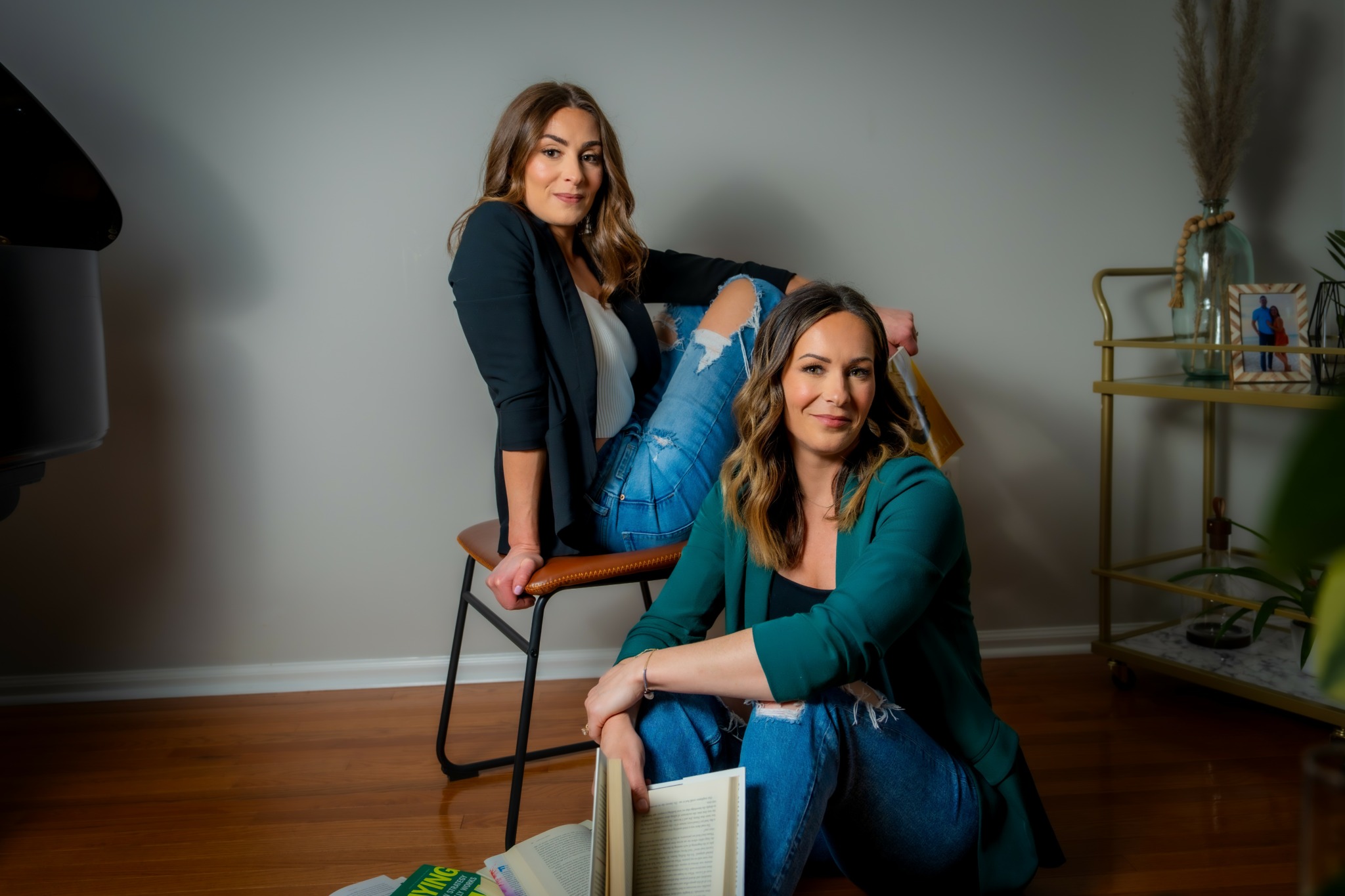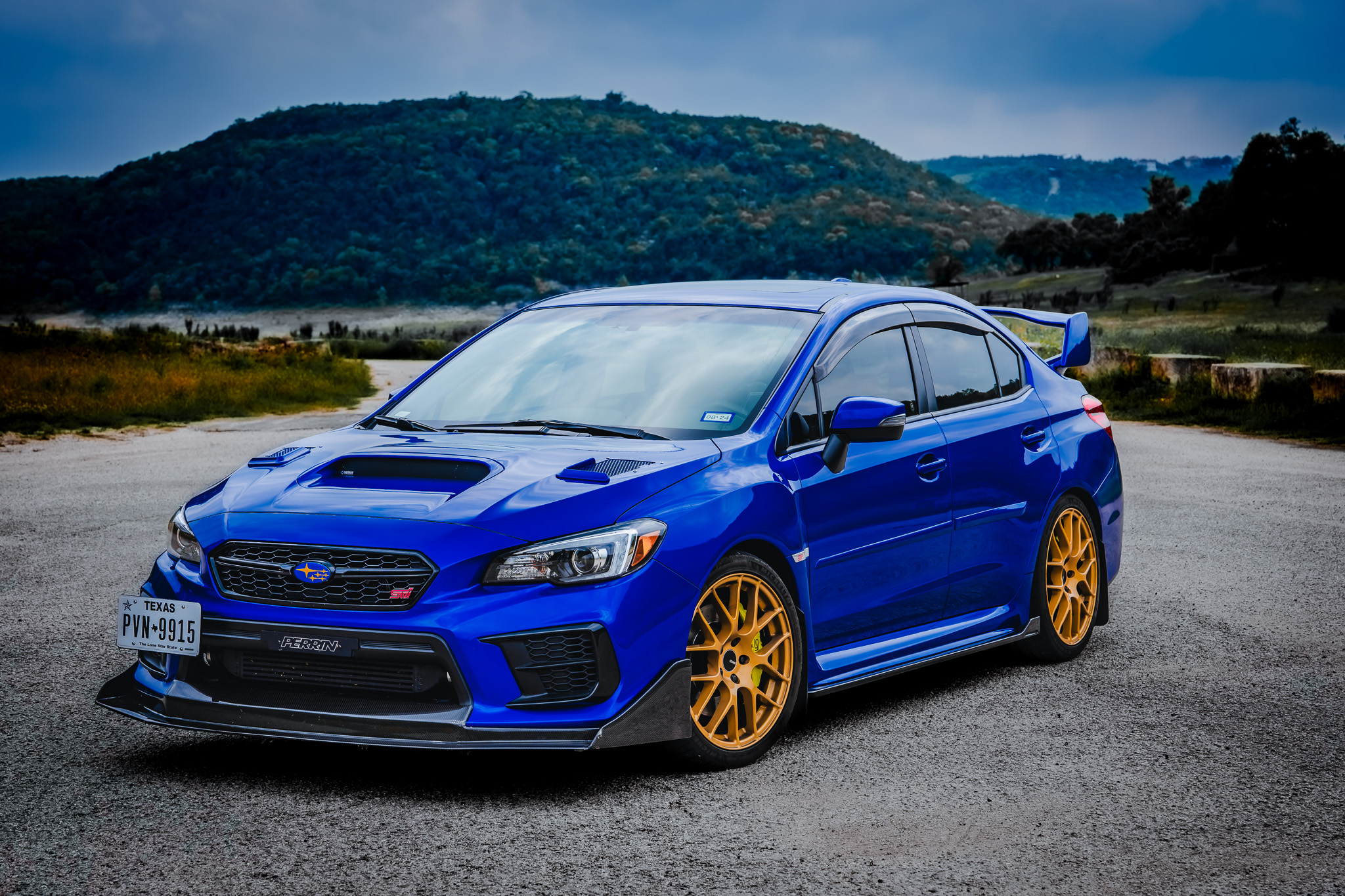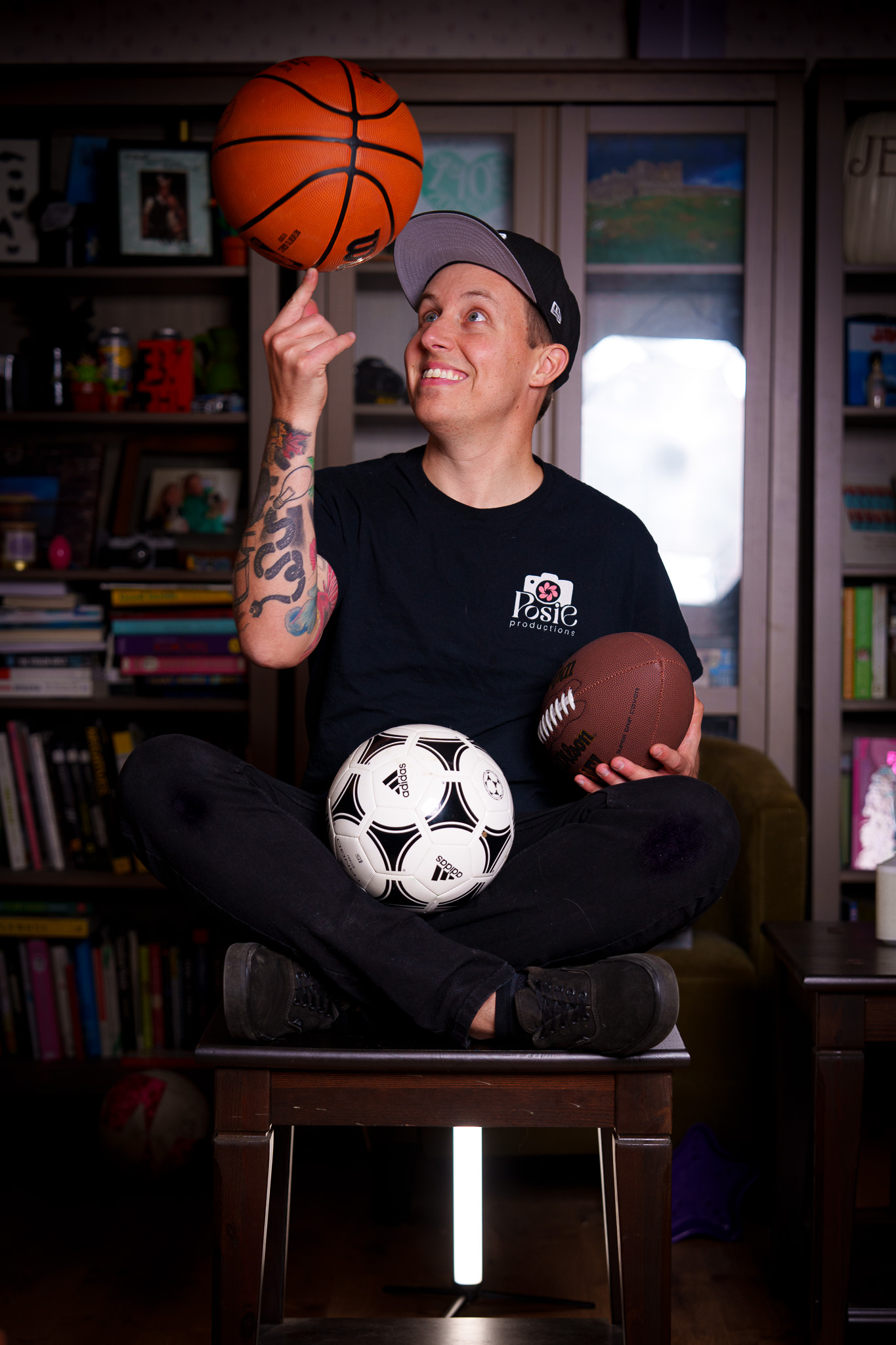We recently connected with Dan Whitzer and have shared our conversation below.
Dan, thanks for joining us, excited to have you contributing your stories and insights. How did you learn to do what you do? Knowing what you know now, what could you have done to speed up your learning process? What skills do you think were most essential? What obstacles stood in the way of learning more?
I’ve learned everything I can do over time—just by doing it. I’d think, “I want to try that,” and then I’d go for it.
When it came to video, I started by doing video projects for my brother when he was in high school. Later, when I began working in marketing and social media, I knew video was important, so I figured out how to integrate that, as well. I have a degree in audio engineering, so I also applied those concepts to video. I’d watch other people do things and then try it myself. That, to me, is the best way to learn anything: think of something you want to do, and then just try it.
You’re going to fail and mess things up, but the more you try, the better you get.
For event planning, it started small—I threw a surprise party for my wife, helped plan our wedding, organized some speaker sessions, and then planned a huge event with 240 sessions over 3-days at 17-locations for 5,000 registrants . Is that crazy? Yes, without a doubt. But I applied what I knew and built it from there. That’s how I’ve approached everything in my career.
I’ve never had formal training in most of what I do, but I never let that stop me. I just tried—and took the leap. If you never try because you’re afraid of messing up or failing, you’ll never learn or get better at anything.
If I could do one thing differently, I’d shadow people in the fields I wanted to grow in. It would’ve been helpful to see how others did things, then add my own touch.
The most essential skill I’ve relied on is being able to apply what I’ve already done to new challenges. I think people don’t do that enough. You might not know how to do something perfectly, but chances are, you already have skills that relate—so use them and then learn to fill in the gaps.
Also, accepting that you won’t be great right away is important. You need to practice and just start. It can’t hurt to try, and you can’t be afraid to put yourself out there. That’s how I’ve done everything—and without that mindset, nothing would’ve happened. I just said, “I’ll figure it out.”
With video and photo work specifically, gear was a big obstacle. I built up my equipment list over time, but early on, it was tough to get things to look the way I imagined or to have gear that could keep up with my ideas. Eventually, I took the leap and invested in quality equipment. It put me in debt, but I believed in my work—and I paid it off.
Money was definitely a barrier. But like I said, I believed in myself and what I could create—and I made it happen. That payoff moment was a great day.
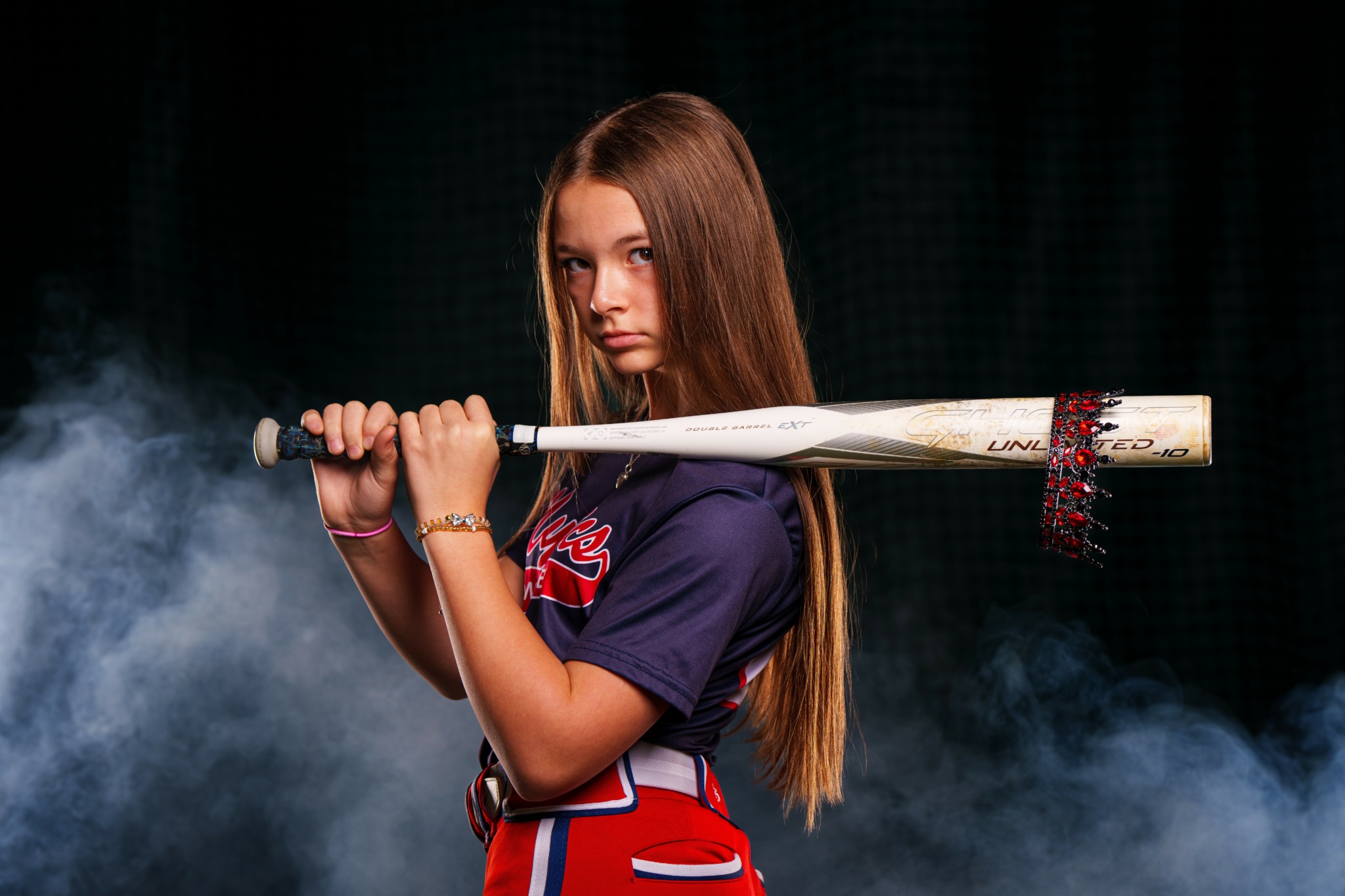
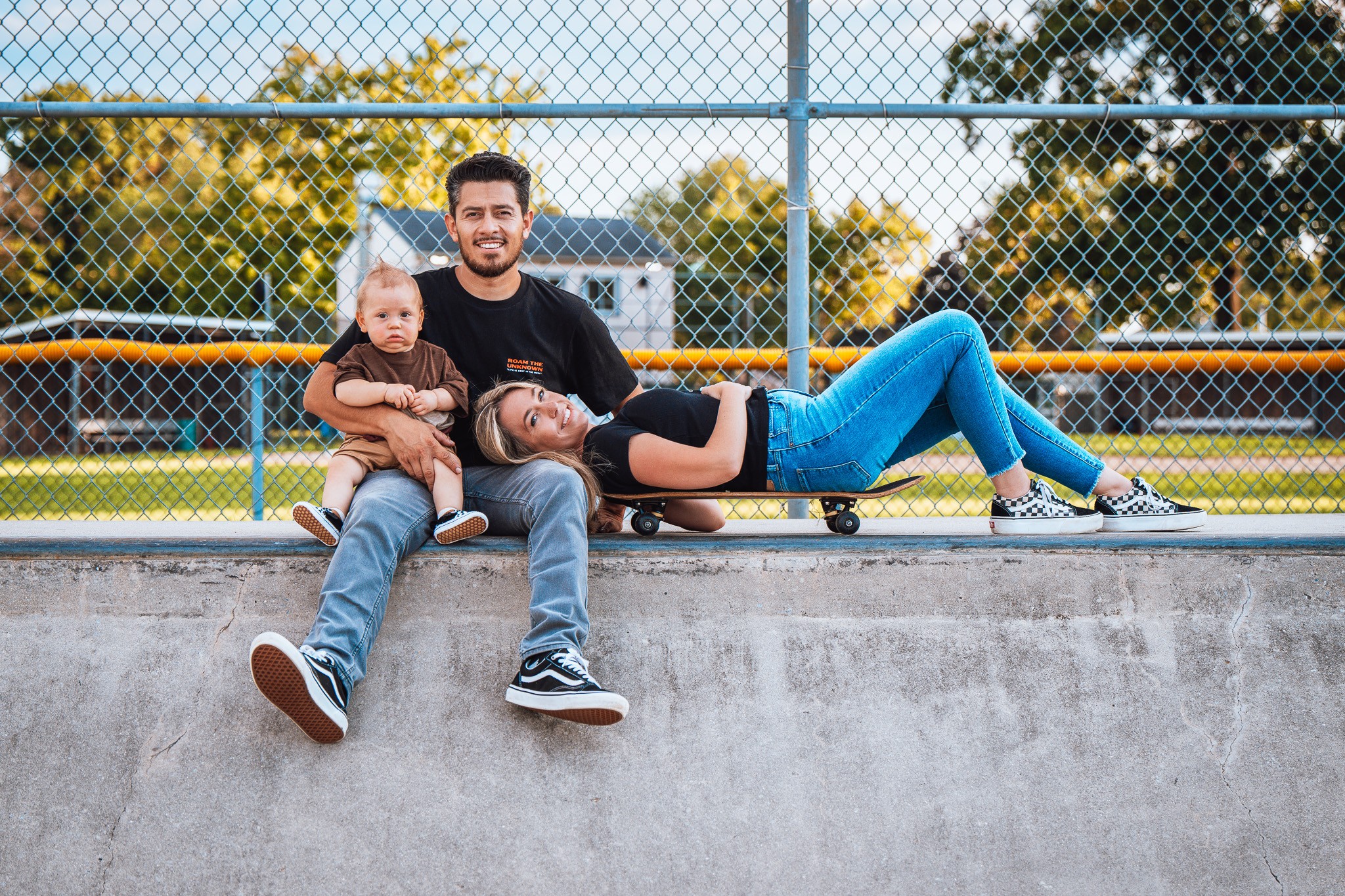
Dan, love having you share your insights with us. Before we ask you more questions, maybe you can take a moment to introduce yourself to our readers who might have missed our earlier conversations?
My career has been anything but linear—I’ve done so many different things across a wide range of industries. It all started when I was a touring drummer for an artist named Leiana, from Philly, right after I earned my degree in audio engineering. When that ended, I had to figure out what was next. I went back to school for business and history, then moved to England to pursue my master’s in music management and promotions.
When I returned to the U.S., I found myself asking, “What now?” Music is a tough industry to navigate, but I ended up landing a role at ESPN doing music licensing and editing for SportsCenter, college basketball, the NFL, and more. It was an incredible job—but my wife was a teacher in New Jersey, and I was living in Connecticut. Her career was more stable than mine, and I knew I needed to be closer to home. So, I hit the reset button. That’s been a recurring theme in my career: constant reinvention.
Back in New Jersey, I took a marketing job with a company that provided school cafeteria services. It lasted just a couple of months before I transitioned to Spencer’s (yes, the store in the mall), where I managed all social media, content creation, and in-store music. I even ran an internal contest for store employees—it was a lot of responsibility for one person. But that role is where I really began developing my photography and videography skills, since visual content was essential for our social platforms. That was the start of my journey into content creation.
Eventually, the workload at Spencer’s became too much. Burned out, I moved to a startup, where I worked in digital marketing—Google Ads, social ads, content creation, and more. It was a solid learning experience, but it ended abruptly when I was laid off.
The timing couldn’t have been worse. I had just gotten married, and it felt like I was spiraling—from ESPN to Spencer’s, to the startup, and now unemployed. I ended up working under the table at a pretzel factory just to make ends meet. It was humbling and mentally exhausting. I wasn’t in a great place.
Soon after, I got a job at a marketing agency doing digital advertising for small businesses. I also created a content studio for them—something they didn’t have before. It allowed me to explore new techniques and build my video skill set even further. That role only lasted about six to nine months, but it led me to Thomas Jefferson University, where I created content and helped organize events and speaker sessions on the innovation team. They may have hired me primarily because of my music background—we were planning a concert—but it turned out to be a great fit.
One of the highlights of that role was producing a major event with Questlove for a book release, which helped set the stage for the next chapter in my career. During that time, I worked with the Director of Innovation at Independence Blue Cross on an event, and she invited me to join her team. They focused on design thinking and creative problem-solving, and they wanted someone with a content creation background. They equipped me with new video gear, and I got to create content, run sessions, and bring new energy to the team.
While there, we were preparing to open a new innovation space in the city. I pitched an idea: a citywide innovation festival that would celebrate Philadelphia’s thinkers, creators, and entrepreneurs. To my surprise, they said yes—and gave me a budget. That’s how the B.PHL Innovation Festival was born.
I could talk about that festival forever. It was massive: 240 events at 17 locations across three days with 5,000 registrants on its first year. It featured incredible guests like Tracee Ellis Ross, Abbi Jacobson, Questlove, and countless Philadelphia-based entrepreneurs. I didn’t have much event planning experience going into it—but that may have worked in my favor. I wasn’t constrained by the “this is how it’s always done” mindset. I just created.
A few years later, the festival was handed off to another organization after a new CEO came in. It felt like raising a child for years and then giving them away. That loss was deeply painful, and ultimately, I decided to leave.
Once again, it was time to reinvent myself.
My business, Posie Productions, had been doing weddings and small projects on the side, so I tried to go all-in. But it was the middle of the COVID pandemic. No one wanted to interact, and budgets were tight—it was a tough time to go solo.
So, I took a job as the Marketing Director for the Philadelphia Union, the city’s professional soccer team. It was a dream job—I love soccer—but I rarely got to see my daughter, and I was still emotionally drained from the loss of the festival. Eventually, I made the hard decision to leave and took a role at Holman in the marketing team as their strategist which then lead to me becoming the Manager of Events. We ran about a 100+ events a year with just two people. It was intense, and eventually, I realized I needed something more sustainable.
Today, I’m the Senior Regional Marketing Manager at a company called AVEVA, where I do events, digital marketing, and content creation for the Northeast region. At the same time, Posie Productions has grown in ways I never imagined. What started as a wedding video side hustle has evolved into a full-service creative agency offering photography, videography, event planning, marketing consulting, and graphic design.
The influence of my time at ESPN and the Union never left—I’ve channeled that love for sports into Posie Productions, and sports photography and videography have now become a major part of our business. In fact, it’s exploded over the last six months. We’ve also added music videos, short films, and more creative projects to the mix.
We recently secured our first studio space, and that’s a game-changer. Having a dedicated place to create—anytime, without limitations—has opened up so many possibilities. I truly believe the best is yet to come.
If there’s a central theme to my career, it’s this: you have to take leaps. Things won’t always go the way you expect, but if you keep learning, keep evolving, and keep showing up, you’ll build something incredible. That’s been my story for the last 10+ years.
I never imagined Posie Productions would become what it is today. But it all came from a willingness to say, “I want to try that,” and then actually doing it. I didn’t always get it right the first time. But with great collaborators—like my partner Alec and so many others—we’ve created amazing things, simply by trying.
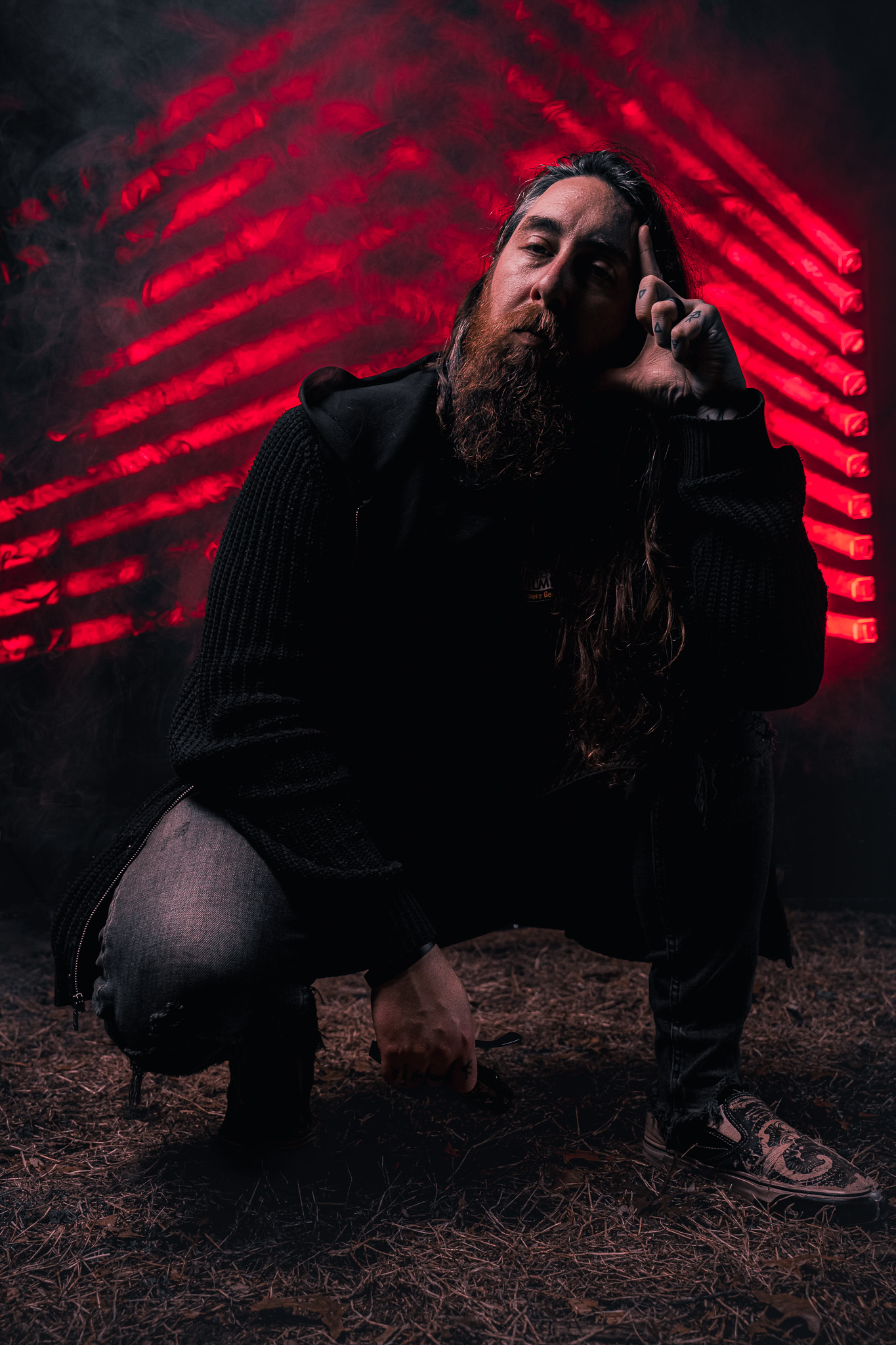
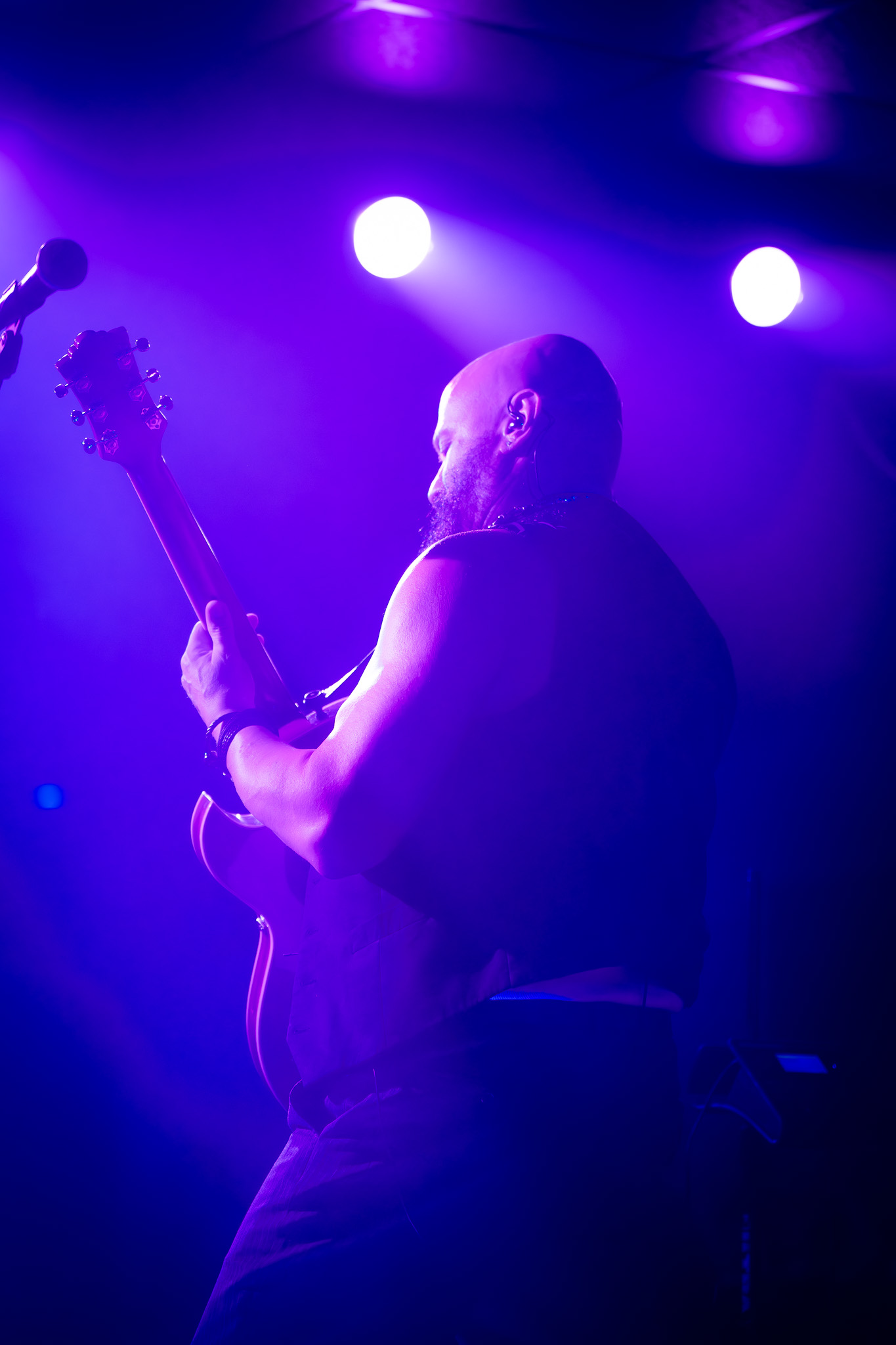
Is there mission driving your creative journey?
At Posie Productions, our mission is simple yet deeply meaningful: we want people to feel seen, celebrated, and special.
We believe that everyone has a story worth telling—whether you’re a young athlete stepping onto the field for the first time, a small business owner chasing your dream, or a couple beginning your next chapter together. No story is too small or ordinary. Every moment, every milestone, every passion deserves to be captured and shared with intention and creativity.
For us, it’s more than just video and photography. It’s about connection. We’re not here to just create content—we’re here to tell real stories in compelling, authentic, and visually powerful ways. Whether it’s through photos or videos, or full-scale event production, we pour heart and craft into every frame.
At the core of everything we do is this belief: Stories matter. People matter. And when we tell those stories right, we help others feel that, too.
That’s what Posie Productions is all about.
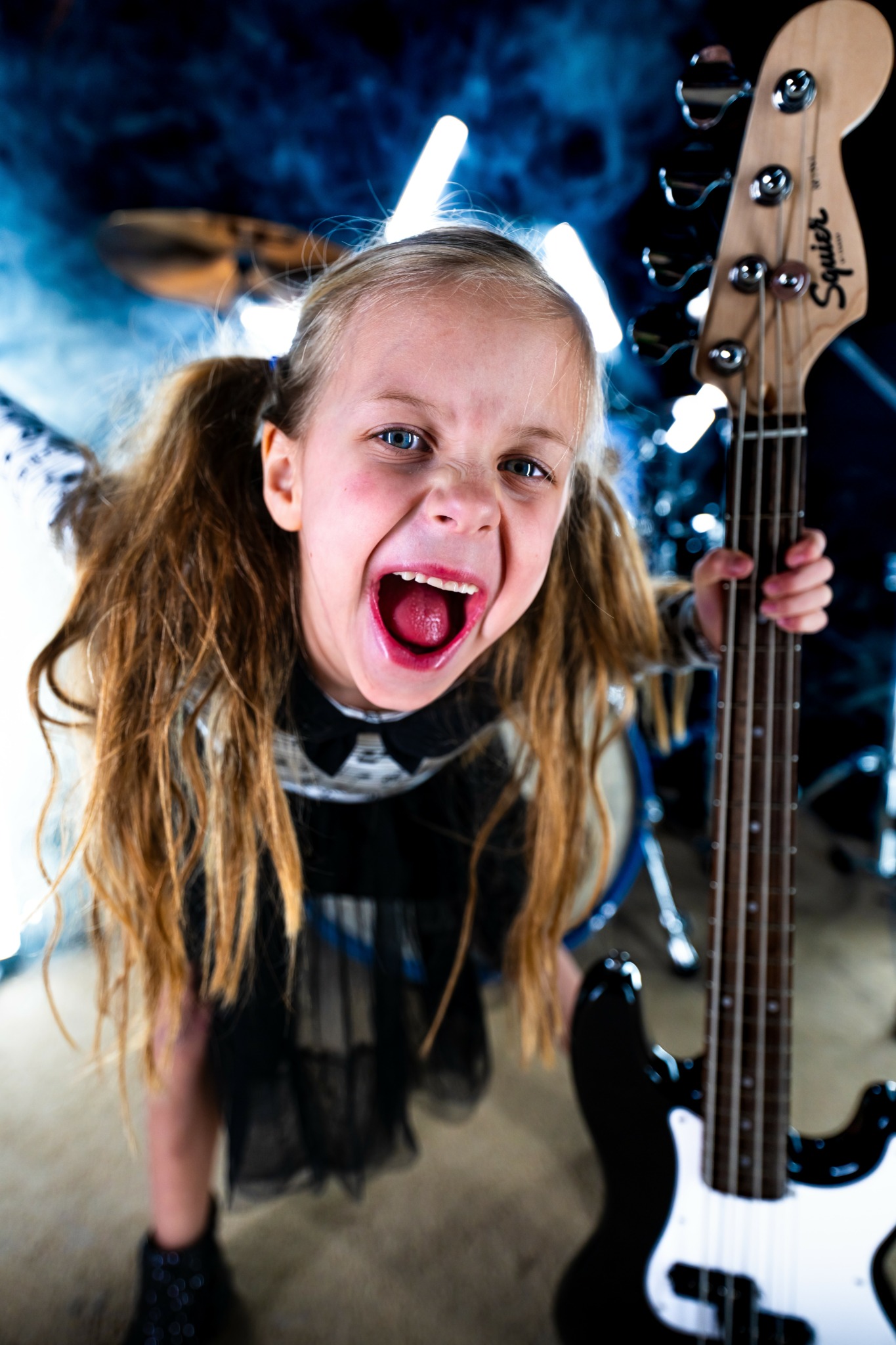
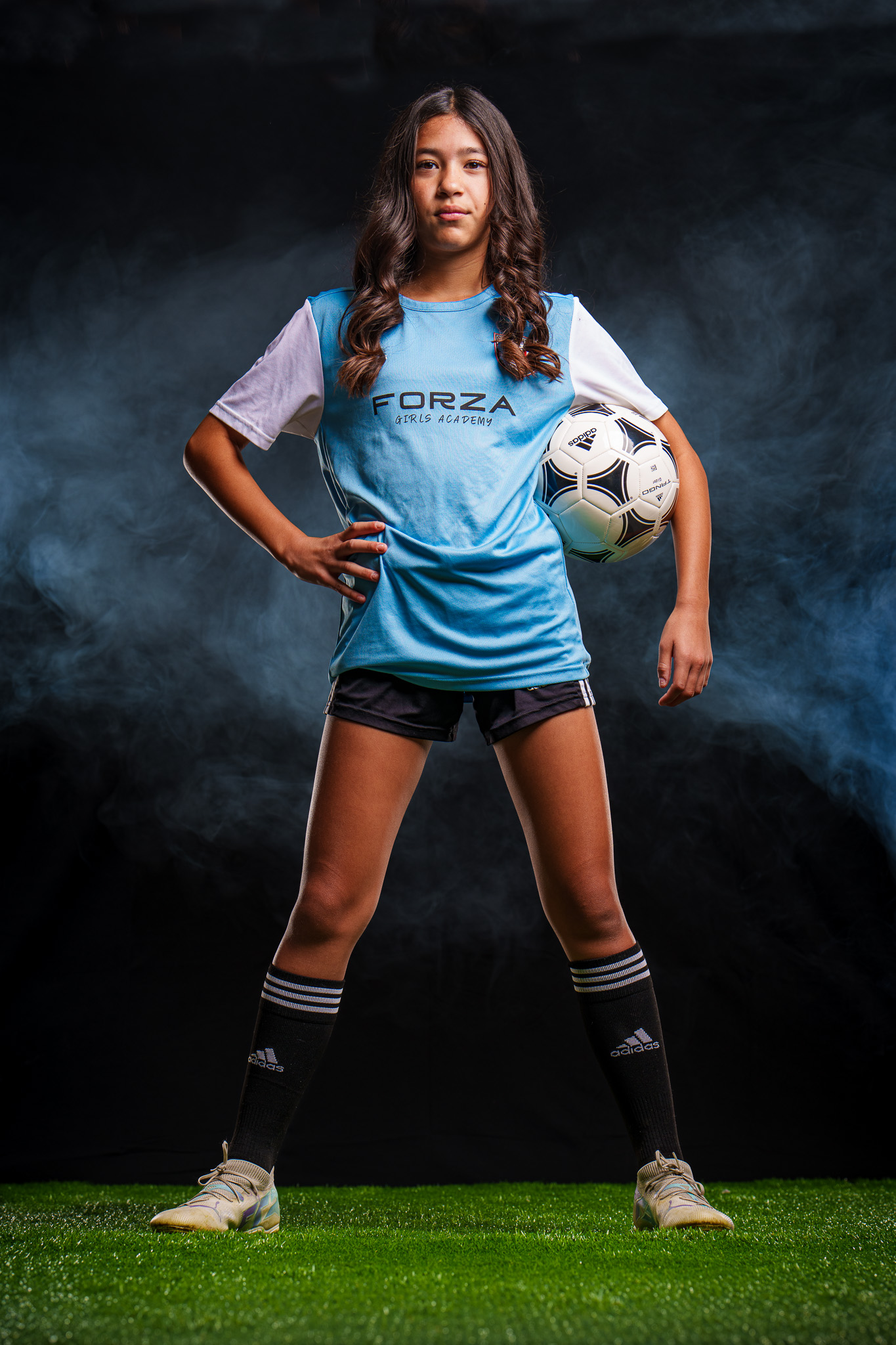
Any advice for growing your clientele? What’s been most effective for you?
For me, the most effective way to grow has been simple: talking to people and providing outstanding customer service.
At Posie Productions, we’ve grown not just because we do great work—but because we’re great to work with. We genuinely care about the people we serve, and that connection shows. After working with us, most of our clients become friends—and I absolutely love that. We aim to be easy to work with, approachable, and a joy to be around. That’s something we truly strive for with every project. When the experience is fun and positive for everyone, the work naturally becomes even better. At the end of the day, word of mouth is the most powerful form of marketing, and that all starts with how you treat people. If you combine great customer service with high-quality work, everything else tends to fall into place.
Contact Info:
- Website: https://www.posieproductions.com
- Instagram: posieproductions
- Facebook: https://www.facebook.com/posieproductions/
- Linkedin: https://www.linkedin.com/in/danwhitzer/
- Youtube: https://www.youtube.com/channel/UCBcOFiKwMh7p1gIHcIccQgw
